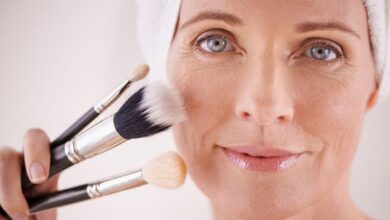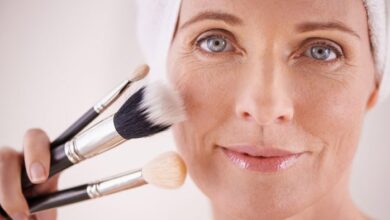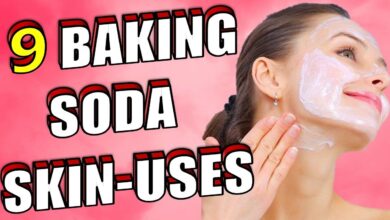3. Scalp conditions: If your scalp falls in either ‘too oily’ or ‘too dry’ types, the likelihood of dandruff increases.
4. Irregular Shampooing: Not washing your hair regularly can leave your scalp clogged with unwanted impurities, dead cells, and excess oils. This can form a perfect environment for the organisms to grow and multiply.
5. Stress: Stress is an in-direct contributor to Dandruff. Feelings of anxiety and nervousness can weaken your immune system and make it difficult for your body to fight foreign invasions.
6. Sensitivity to Products: If your scalp is allergic to haircare products, there is a high likelihood of falling prey to dandruff. Also, product buildup on the scalp can clog pores, leading to scalp infections and flakes.
Types of Dandruff:
There are two major types of dandruff, each caused by a specific condition of the scalp. Learning about these will help you take the right action to treat your problem.
1. Dry Dandruff:
It is caused by the depletion of moisture levels on the scalp, which leads to greyish-white flakes on the scalp. In this itchy condition, the scales keep falling all over the shoulder, whenever you scratch your head or brush your hair.
2. Oily Dandruff:
This dandruff is caused when the scalp produces excess sebum, which reacts with the yeast residing on the scalp’s skin. The result is greasy, sticky, and mild yellowish-coloured flakes which can form a layer on the scalp. To get quick relief from these symptoms, you must only use a product specially designed for the condition.
Is Dandruff Treatable?
Dandruff is not a dangerous problem and will not pose any significant health hazards. It is treatable if you take corrective measures at the right time. This includes,
- Identifying the symptoms of dandruff.
- Diagnosing the type of dandruff.
- Choosing the right shampoo, lotion, or hair care product for your condition.
- Using home remedies to control the growth of yeast on the scalp.
10 Effective Home Remedies To Treat Dandruff:
open next page to continue reading….




